Wheelchair Buying Guide: Choose Wisely with Expert Advice!
Ceasar
Last Update 2 months ago
Welcome to our comprehensive Wheelchairs Buying Guide! If you or a loved one is in need of enhanced mobility, finding the perfect wheelchair can be a life-changing decision.
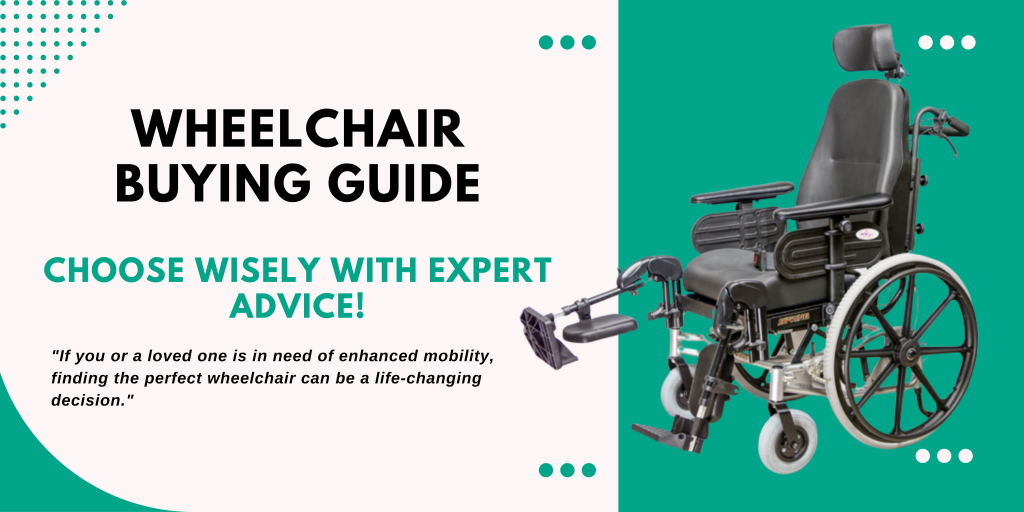
With a plethora of options available, selecting the right wheelchair may seem like a daunting task. However, fear not! In this guide, we will walk you through all the essential factors to consider when choosing a wheelchair that aligns with your unique needs and preferences. Whether you’re looking for a power wheelchairs for outdoor adventures or a manual wheelchairs for everyday use, we’ve got you covered. Get ready to empower your mobility and gain the independence you deserve with the help of this informative wheelchair buying guide.
Who Benefits from Wheelchairs?
Wheelchair users include Children, Adults and the Elderly with mobility challenges or disabilities that affect their ability to walk or move independently.
Wheelchairs are ideal for:
- HANDICAPPED INDIVIDUALS - Wheelchairs provide essential support and independence for individuals with physical disabilities or mobility impairments, enabling them to move freely and comfortably.
- PEOPLE WITH PHYSICAL DISABILITIES - Those facing various disabilities, such as spinal cord injuries, cerebral palsy, muscular dystrophy, or amputations, can greatly benefit from wheelchairs to enhance their mobility and daily living.
- IMMOBILE PATIENTS - Wheelchairs serve as invaluable aids for patients recovering from injuries, surgeries, or medical conditions that temporarily restrict their ability to walk or stand.
- ELDERLY INDIVIDUALS - As individuals age, they may experience mobility limitations due to age-related conditions, arthritis, or other health issues. Wheelchairs can offer elderly individuals the means to maintain their independence and participate in daily activities.
- SENIOR CITIZENS - The aging population often experiences mobility limitations due to age-related conditions, arthritis, or other health issues. Wheelchairs can offer seniors a means to maintain their independence and participate in daily activities.
- INDIVIDUALS RECOVERING FROM INJURIES OR SURGERIES - After accidents, injuries, or medical procedures, individuals may need temporary assistance with mobility during the recovery process.
- THOSE WITH CHRONIC HEALTH CONDITIONS - People with chronic illnesses like arthritis, chronic fatigue syndrome, fibromyalgia, or respiratory conditions may find a wheelchair beneficial for conserving energy and reducing pain during physical activities.
- STROKE SURVIVORS - Individuals who have experienced strokes and may have balance and coordination difficulties can benefit from using wheelchairs for increased safety and stability.
- CHILDREN WITH DISABILITIES - Wheelchairs designed for children cater to the unique needs of young users with mobility impairments or congenital conditions.
- PROFESSIONALS AND HEALTHCARE PROVIDERS - Wheelchairs cater to the unique needs of each user, offering various types and configurations, such as manual and power wheelchairs, to ensure optimal comfort and mobility for those in need. Whether for short-term recovery or long-term use, wheelchairs play a crucial role in empowering individuals, regardless of age or physical condition, to move freely and confidently in their daily lives.
Wheelchairs cater to the unique needs of each user, offering various types and configurations, such as manual and power wheelchairs, to ensure optimal comfort and mobility for those in need. Whether for short-term recovery or long-term use, wheelchairs play a crucial role in empowering individuals, regardless of age or physical condition, to move freely and confidently in their daily lives.
Power Wheelchairs
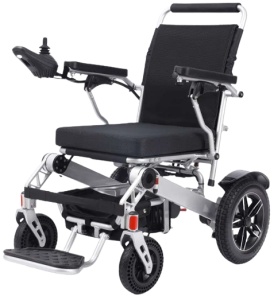
Manual Wheelchairs
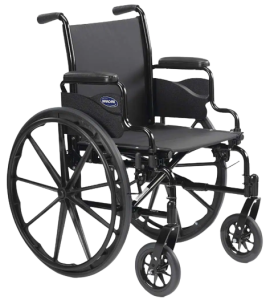
Power Wheelchairs further have 3 Types of Wheelchairs:
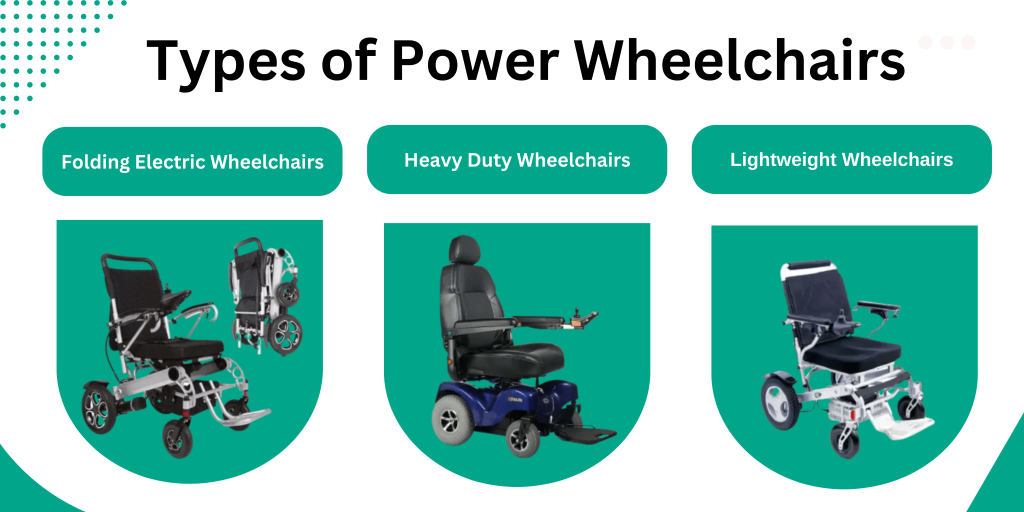
Folding Electric Wheelchairs
Folding electric wheelchairs are designed for enhanced portability and ease of transportation. These wheelchairs feature a collapsible frame that allows them to be easily folded and stowed in a car trunk or storage space.
Ideal for: Individuals who require a versatile and travel-friendly mobility solution. They are perfect for both indoor and outdoor use, offering the convenience of easy transportation for day-to-day activities and travel.
Heavy Duty Power Wheelchairs
Heavy-duty power wheelchairs are built to accommodate users with higher weight capacities and offer robust performance on various terrains.
These wheelchairs feature sturdy frames, reinforced components, and powerful motors to handle the demands of larger individuals while ensuring a smooth and stable ride.
Ideal for: Users who require a wheelchair with a higher weight capacity and the ability to handle demanding conditions.
Lightweight Electric Wheelchairs
Lightweight electric wheelchairs are designed for those seeking a balance between portability and performance. These wheelchairs use lightweight materials like aluminum or carbon fiber to reduce overall weight, making them easier to maneuver and transport.
Ideal For: Active users with mobility challenges who need a wheelchair that offers flexibility and portability for daily activities and travel.
Manual Wheelchairs further have 6 Types of Wheelchairs:Manual Wheelchairs further have 6 Types of Wheelchairs:
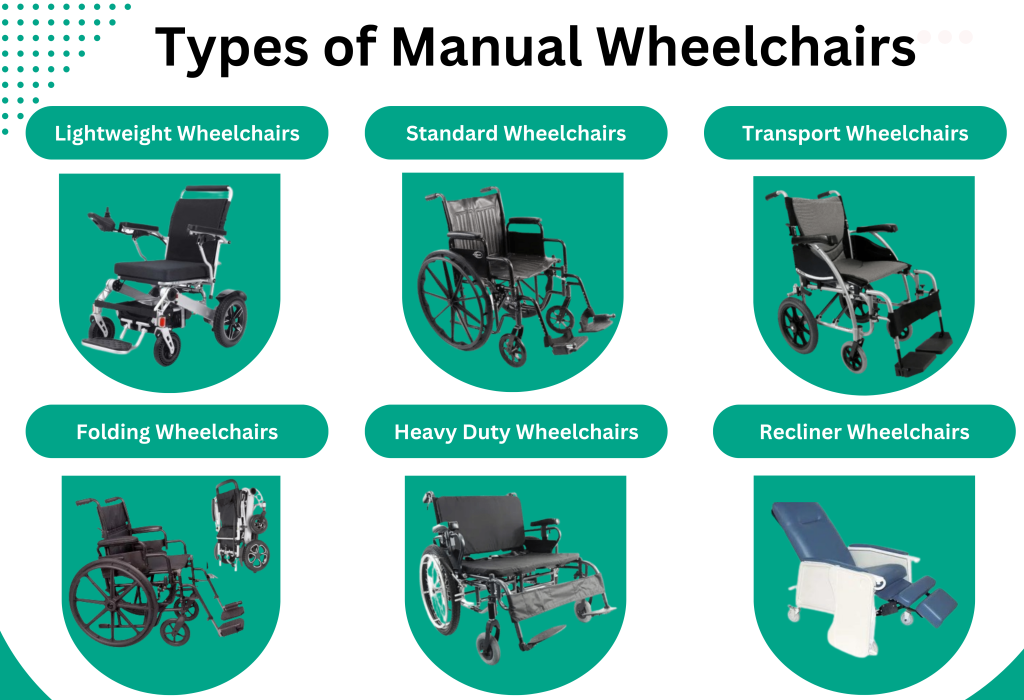
Lightweight Manual Wheelchairs
Lightweight manual wheelchairs are designed for ease of use and maneuverability. They are constructed using lightweight materials like aluminum or titanium, reducing overall weight while maintaining strength. These wheelchairs are suitable for users who can self-propel or require minimal assistance.
Ideal for: Individuals who need a wheelchair that is easy to propel and transport, providing flexibility for active lifestyles and travel.
Standard Manual Wheelchairs
Standard manual wheelchairs are the most common type and are designed for everyday use. They feature a simple frame with two large rear wheels and two small front caster wheels. These wheelchairs are self-propelled by the user, using hand rims attached to the rear wheels. They are versatile, affordable, and suitable for users with moderate mobility impairments.
Ideal for: Individuals seeking a basic and budget-friendly option for regular use and indoor mobility.
Manual Transport Wheelchairs
Transport wheelchairs, also known as companion wheelchairs, are lightweight and compact wheelchairs designed for easy transport and temporary use. They are pushed by a caregiver or companion, as they lack the large rear wheels for self-propulsion.
Ideal for: Short trips, doctor visits, or when the user needs assistance with mobility.
Folding Manual Wheelchairs
Folding wheelchairs are designed for convenience and portability. They feature a collapsible frame that can be folded and stored easily in a car trunk or storage space. Folding wheelchairs come in various styles, including standard, lightweight, and heavy-duty models, catering to different user needs.
Ideal for: Users who need a wheelchair that can be easily transported and stored, making them suitable for both indoor and outdoor use.
Heavy Duty Manual Wheelchairs
Heavy-duty manual wheelchairs are built to accommodate higher weight capacities and provide increased durability. They feature a sturdy frame, reinforced components, and larger wheels to handle the demands of larger individuals while offering stability and support.
Ideal for: Users with higher weight requirements who need a wheelchair that can withstand regular use and navigate various terrains.
Recliner Wheelchairs
Recliner wheelchairs offer adjustable seating positions, allowing the user to recline the backrest for added comfort. These wheelchairs are beneficial for individuals who spend extended periods in their chairs or require the ability to change positions regularly.
Ideal for: Users who need to alleviate pressure and improve positioning for medical reasons or those seeking enhanced comfort during extended periods of sitting.
Key Differences between Manual Wheelchairs and Power
| Manual Wheelchairs | Manual wheelchairs require the user to self-propel using their arms to push on the wheel rims or by having a caregiver push them from behind.\tManual wheelchairs require the user to self-propel using their arms to push on the wheel rims or by having a caregiver push them from behind. | |
| Power Wheelchairs | Power wheelchairs are motorized and powered by batteries, allowing users to control their movement using a joystick or specialized controls. | |
| Propulsion Method | Manual wheelchairs are suitable for individuals with moderate upper body strength and mobility, as they require physical effort to move. | |
| Mobility Level | Power wheelchairs are ideal for individuals with limited upper body strength, severe mobility impairments, or those who cannot self-propel a manual wheelchair. | |
| Terrain and Environment | Manual wheelchairs are more suitable for indoor use and smoother surfaces. They may require more effort to navigate uneven or rough terrains. | Power wheelchairs offer better performance on various terrains, including outdoor surfaces, and can handle inclines and obstacles more easily. |
| Independence and Convenience | Manual wheelchairs offer users greater independence when navigating familiar environments, but they may require assistance for longer distances or challenging terrains. | Power wheelchairs provide increased independence, as users can control their movement with minimal physical effort, making them more convenient for daily activities and outdoor use. |
| Portability | Manual wheelchairs are generally lighter and more compact, making them easier to transport and store, especially folding models. | Power wheelchairs are heavier due to the inclusion of batteries and motors, making them less portable and more challenging to transport without assistance. |
| Customization Options | Manual wheelchairs offer customization options for seat width, depth, and backrest height to provide a more personalized fit for the user. | Power wheelchairs can be customized with various seating and positioning options to ensure optimal comfort and support for the user’s specific needs. |
| Cost | Manual wheelchairs are generally more affordable than power wheelchairs, making them a cost-effective option for some users. | Power wheelchairs are more expensive due to the added technology and features required for motorized mobility. |
Manual Wheelchairs vs. Power Wheelchairs – Which one should
The decision between a manual wheelchair and a power wheelchair depends on several factors, including your specific mobility needs, lifestyle, preferences, and overall health condition.
To make an informed choice, consider the following:
Choose a manual wheelchair if:
✔ You have sufficient upper body strength and mobility to self-propel the wheelchair.
✔ You prefer a more lightweight and portable option for ease of transportation and storage.
✔ Your daily activities primarily involve indoor use or on smooth surfaces.
✔ You are looking for a more cost-effective option compared to power wheelchairs.
Choose a power wheelchair if:
✔ You have limited upper body strength or mobility, making self-propelling difficult.
✔ You need a wheelchair for frequent outdoor use or on uneven terrains.
✔ You seek greater independence and convenience, as power wheelchairs are controlled with a joystick or specialized controls.
✔ You have specific medical conditions or disabilities that benefit from features such as reclining, standing, or custom positioning options.
✔ You have a caregiver or assistant available to help with transportation and maintenance, as power wheelchairs are heavier and require charging.
Ultimately, the choice comes down to your individual needs and preferences. If you can self-propel and desire a more lightweight and portable option, a manual wheelchair may be suitable. On the other hand, if you require powered mobility, desire greater independence, and are willing to invest in the convenience and features of a power wheelchair, then it may be the better choice for you. Consulting with a healthcare professional or mobility specialist can also help you make an informed decision based on your specific circumstances.
Manual Wheelchairs vs. Power Wheelchairs – Which one should you choose?
The decision between a manual wheelchair and a power wheelchair depends on several factors, including your specific mobility needs, lifestyle, preferences, and overall health condition.
To make an informed choice, consider the following:
Choose a manual wheelchair if:
✔ You have sufficient upper body strength and mobility to self-propel the wheelchair.
✔ You prefer a more lightweight and portable option for ease of transportation and storage.
✔ Your daily activities primarily involve indoor use or on smooth surfaces.
✔ You are looking for a more cost-effective option compared to power wheelchairs.
Choose a power wheelchair if:
✔ You have limited upper body strength or mobility, making self-propelling difficult.
✔ You need a wheelchair for frequent outdoor use or on uneven terrains.
✔ You seek greater independence and convenience, as power wheelchairs are controlled with a joystick or specialized controls.
✔ You have specific medical conditions or disabilities that benefit from features such as reclining, standing, or custom positioning options.
✔ You have a caregiver or assistant available to help with transportation and maintenance, as power wheelchairs are heavier and require charging.
Ultimately, the choice comes down to your individual needs and preferences. If you can self-propel and desire a more lightweight and portable option, a manual wheelchair may be suitable. On the other hand, if you require powered mobility, desire greater independence, and are willing to invest in the convenience and features of a power wheelchair, then it may be the better choice for you. Consulting with a healthcare professional or mobility specialist can also help you make an informed decision based on your specific circumstances.
What are common wheelchair accessories?
Wheelchair Bags
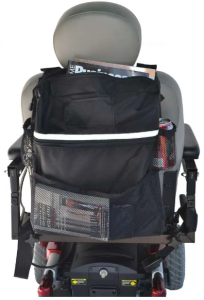
Cup Holders
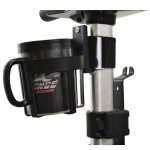
Wheelchair Trays
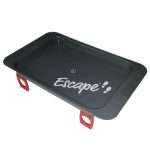
Wheelchair Batteries and Chargers
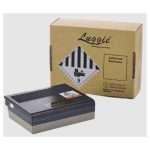
Power Chair Lifts
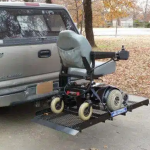
Wheelchair Caregiver Attachments
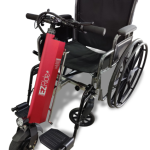
Wheelchair Covers
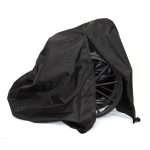
Wheelchair Tracking Devices

Important Questions to Ask When Buying a Wheelchair
- WHAT TYPE OF WHEELCHAIR IS BEST SUITED FOR MY NEEDS?Determine whether a manual or power wheelchair is more appropriate based on your mobility level, lifestyle, and personal preferences.
- WHAT ARE THE DIMENSIONS AND WEIGHT CAPACITY OF THE WHEELCHAIR?
Ensure that the wheelchair’s seat dimensions and weight capacity can comfortably accommodate your body size and weight. - WHAT ARE THE KEY FEATURES AND ACCESSORIES INCLUDED WITH THE WHEELCHAIR?
Inquire about essential features like seat cushions, armrests, footrests, and other accessories that may enhance your comfort and convenience. - WHAT IS THE WHEELCHAIR'S MANEUVERABILITY AND TURNING RADIUS?
Evaluate the wheelchair’s turning capabilities to ensure it can navigate through tight spaces and obstacles with ease. - HOW WILL THE WHEELCHAIR BE TRANSPORTED OR STORED?Consider the wheelchair’s portability and whether it can be easily transported in a car or stored in your home.
- WHAT IS THE WHEELCHAIR'S DURABILITY AND WARRANTY COVERAGE?
Check the quality of the materials used and inquire about the warranty to ensure the wheelchair will provide reliable performance over time. - CAN I TEST THE WHEELCHAIR BEFORE MAKING A PURCHASE?
Request a test drive or demonstration to assess the wheelchair’s comfort, functionality, and suitability for your specific needs. - By asking these important questions when buying a wheelchair, you can make an informed decision and select the best wheelchair that aligns with your mobility requirements and enhances your overall quality of life.
Our Top 5 Fast Selling Power Wheelchairs Products You May Buy:

Our Top 5 Fast Selling Manual Wheelchairs Products You May Buy:

Conclusion:
In conclusion, we hope that our Wheelchair Buying Guide has provided you with valuable insights and essential information to make a well-informed decision when choosing the perfect wheelchair. At Top Medical Mobility, we understand the significance of finding the right mobility solution that empowers you to embrace life with confidence and independence.
From understanding the various types of wheelchairs, including manual and power options, to assessing your unique needs and lifestyle considerations, we aimed to equip you with the knowledge necessary to select a wheelchair that perfectly aligns with your requirements.
Remember, the ideal wheelchair is one that not only fits your physical specifications but also complements your daily activities, enhances your comfort, and empowers your mobility journey. Whether you need a folding electric wheelchair for travel or a heavy-duty power wheelchair for outdoor adventures, Top Medical Mobility offers a wide range of high-quality options to cater to diverse needs.
Our commitment to providing top-notch customer service ensures that you can confidently explore our selection, ask questions, and receive the assistance you need in making the right choice.
We thank you for choosing Top Medical Mobility as your trusted partner in enhancing your mobility and quality of life. Our team looks forward to serving you with dedication, compassion, and expertise throughout your wheelchair journey. Should you have any further inquiries or need personalized recommendations, please do not hesitate to reach out to our experienced team.

